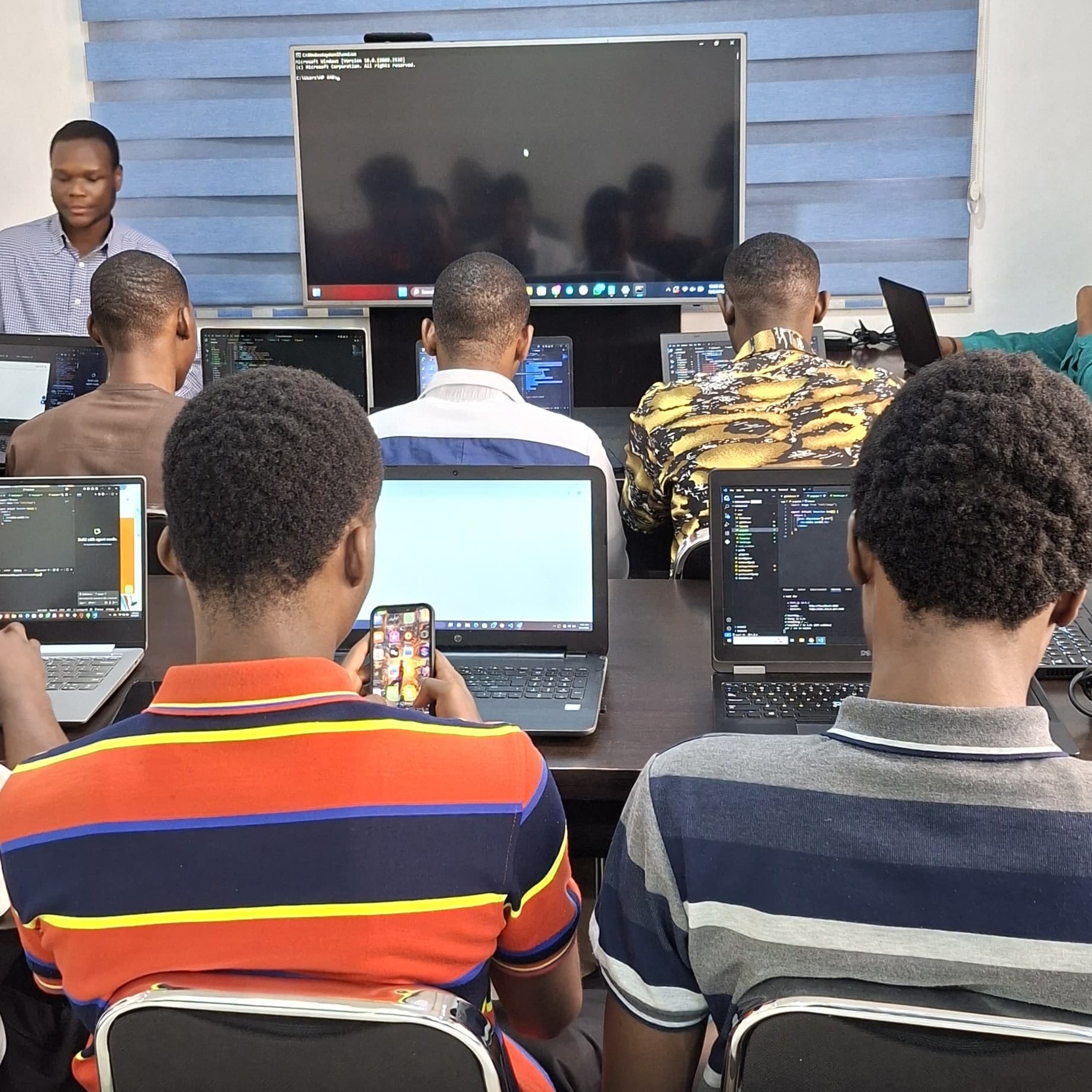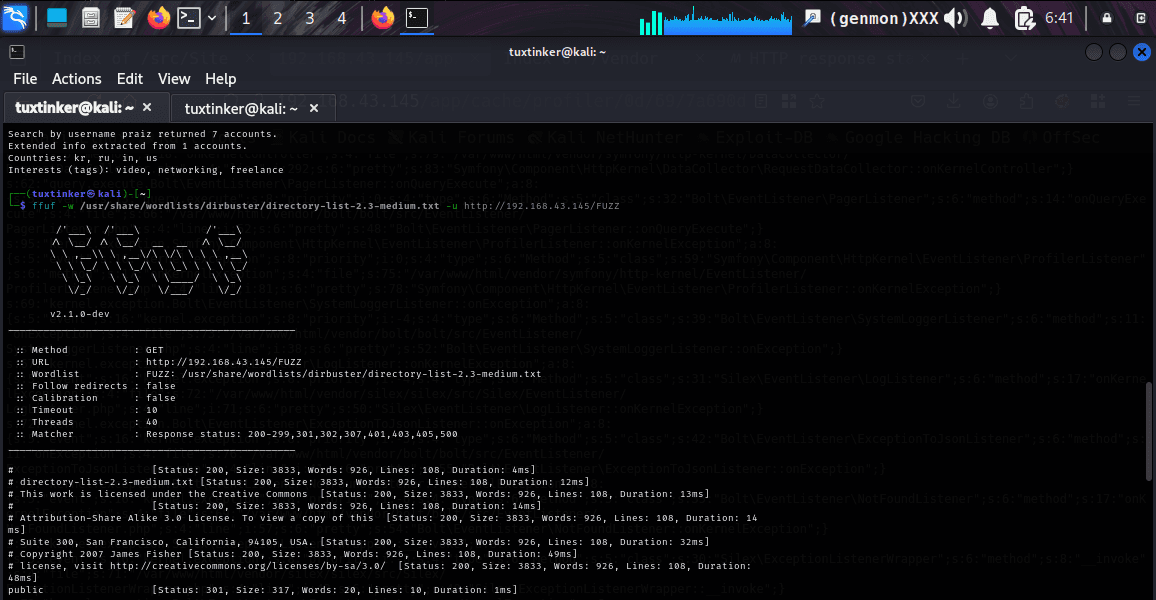Ad by early code
Acquire Industry standard cybersecurity training plus certification
Early Code Institute offers a practical Cybersecurity training in Abuja, equipping you with the skills to gain certification and employment.
Hands-on Cybersecurity Training in Abuja
Anna Edeghoghene Enerieta - Published September 8, 2025

As a leading force in practical, hands-on cybersecurity training in Abuja, Early Code Institute provides the tools, guidance, and confidence you need to defend systems and build a successful career in cybersecurity, whether you're a student, IT enthusiast, or professional looking to upgrade.
Analyzing the critical need for a skilled workforce, Early Code Institute has designed its curriculum to go beyond theoretical knowledge, focusing instead on immersive, project-based Cybersecurity training.
Our approach ensures that students do not just learn about cybersecurity tools and techniques, but actively use them in simulated real-world projects.
What is Hands-on Cybersecurity Training?
Hands-on cybersecurity training is an active learning methodology that prioritizes practical experience over passive instruction. It's about doing, not just watching or listening.
- Simulated Environments: This training utilizes cyber ranges that replicate real-world networks and systems. Trainees can practice attacking and defending a network in a safe, controlled environment without causing actual damage.
- Use of Industry Tools: Students get to work with the same cybersecurity tools and software used by professionals, such as Wireshark for network analysis, Nmap for network scanning, and Kali Linux for penetration testing. This direct exposure prepares them for the workplace.
- Learning by Doing: The core principle is that you learn best by doing. Instead of just learning about a firewall, you configure one. Instead of just hearing about a vulnerability, you exploit and then patch it.
- Practical Skill Development: The focus is on developing concrete, marketable skills that employers are looking for, such as incident response, network defense, and ethical hacking.

Tuxthinker tool running on Kali Linux
Learn Cybersecurity and Ethical Hacking in Early Code Institute
Nyanya Learning Center
Services: Trainings, Mentorship, SIWES Placement, and Internship
Essential Tools For Cybersecurity
Hands-on cybersecurity training relies on a diverse set of tools that allow students to simulate attacks, analyze network traffic, and practice defending systems.
These tools are categorized by their function within a cybersecurity professional's workflow. Some of these tools are cover in our trainings in any of our campuses in Abuja.
- Operating Systems for Penetration Testing: These are special operating systems that come with a huge set of tools already installed for ethical hacking and security testing. Like Kali Linux and Parrot Security OS.
- Network Scanning and Reconnaissance Tools: These tools are used to gather information about a target network or system before an attack or defense. Tools like Nmap (Network Mapper) and Wireshark.
- Exploitation and Vulnerability Assessment Frameworks: These tools are used to identify and exploit vulnerabilities in systems and applications. Tools like Metasploit Framework, Nessus, and Burp Suite are used for this process.
- Password Cracking and Cryptography Tools: These tools are used to test the strength of passwords and understand the principles of cryptography. Tools like John the Ripper and Hashcat are used for this process.
- Digital Forensics and Incident Response (DFIR) Tools: These tools are used to investigate cyber incidents and recover digital evidence after a security breach. Tools like FTK Imager, The Sleuth Kit (TSK) & Autopsy, and Volatility Framework.
Benefits of Hands-on Training
Hands-on training provides significant advantages over a purely theoretical education, making graduates more competitive in the job market.
- Bridging the Theory-Practice Gap: It transforms abstract concepts into tangible skills. For instance, understanding the principle of a DDoS attack is one thing; mitigating one in a live simulation is a completely different, and more valuable skill.
- Enhanced Problem-Solving Skills: Working through complex, real-world scenarios forces students to think on their feet, diagnose issues, and devise creative solutions under pressure. This builds a crucial mindset of adaptability
- Increased Job Readiness: Employers highly value candidates with proven, practical experience. Hands-on training demonstrates a candidate's ability to apply their knowledge directly to a job role, making them more attractive to recruiters.
- Boosted Confidence: Successfully navigating and resolving a simulated cyber threat builds confidence in one's abilities. This self-assurance is vital for professionals who must make critical decisions in high-stakes situations.
- Better Retention of Knowledge: The active process of hands-on learning helps solidify concepts in a student's memory, leading to a deeper understanding and better recall of information compared to rote memorization.
According to the ISACA State of Cybersecurity report, 95% of cybersecurity leaders say hands-on experience is important in determining if a candidate is qualified, with 73% rating it as very important.- ISACA
The Role of Cybersecurity in Nigeria
In Nigeria, a country with a rapidly expanding digital economy, the need for cybersecurity professionals is more urgent than ever.
- Protecting Critical Infrastructure: From banking and telecommunications to government services, Nigeria's critical infrastructure is increasingly reliant on digital systems, making it a prime target for cyberattacks.
- Combating Cybercrime: Nigeria faces a significant challenge with various forms of cybercrime, including scams, phishing, and online fraud. A robust cybersecurity workforce is essential to combat these threats.
- Economic Growth: As businesses move online, protecting digital assets and customer data becomes paramount. A strong cybersecurity ecosystem builds trust and enables sustained economic growth.
- National Security: Cybersecurity is a matter of national security, as it protects sensitive government data and defends against cyber espionage and warfare.
- Job Creation: The growing demand for cybersecurity experts is creating new job opportunities for Nigerian youth, helping to address unemployment and build a skilled, tech-savvy workforce.
What Early Code Institute Offers as a Training Center in Abuja
Choosing the right training program is a critical decision one can make. Early Code Institute offers a specialized pathway into a cybersecurity career. Recognizing that this field demands hands-on skills, the institute has designed a training program that moves beyond lectures and textbooks.
Here are some key factors to consider.
- Hands-on Practice: At Early Code Institute, the most important part of your training is getting your hands dirty. They provide extensive, well-structured exercises that simulate real-world cybersecurity projects, ensuring you learn by doing, not just by listening.
- Experienced Instructors: Early Code Institute's programs are led by instructors who have real-world industry experience. Their practical insights and professional stories give you a valuable context that textbooks simply can't provide, making the lessons stick. Training in all our campuses in Abuja are lead by highly knowledgeable and experienced instructors.
- Career Support: Beyond the classroom, Early Code Institute offers comprehensive career support. From dedicated career guidance and resume assistance to job placement support, they are committed to helping you successfully transition from a student to a working professional.
- Reputation and Reviews: The quality and effectiveness of Early Code Institute's training are reflected in its reputation. You can research and read reviews from former students and learn about their success stories to see for yourself how the program has helped them build their careers.
Cybersecurity Topics Early Code Institute Training Covers
Early Code Institute's cybersecurity training focuses on providing students with the practical skills and foundational knowledge needed to begin a career as a Cybersecurity Analyst.
The curriculum is designed to be hands-on, covering a mix of theoretical concepts and practical applications using industry-standard tools.
- Ethical Hacking: Hacking systems to find vulnerabilities.
- Threat Detection and Incident Response: Finding and fixing security problems fast.
- Network and System Security: Protecting computer networks from attacks.
- Risk Management: Identifying, assessing, and reducing security risks.
- Digital Forensics: Finding digital evidence after a crime
- Operating System Security and Cryptography: Securing computer software using codes.
Who Should Take Cybersecurity Training?
Cybersecurity is a rapidly growing field with a massive global talent shortage, making it an excellent career choice for a wide range of individuals. The field is not limited to tech experts and welcomes people from diverse backgrounds.
Here's a breakdown of who should consider learning cybersecurity:
- IT professionals who want to specialise (network admins, system engineers).
- Fresh graduates and career-switchers aiming to enter a fast-growing field.
- Security-conscious managers and non-technical staff who need awareness training.
- Entrepreneurs and startup founders must secure their products and customer data.
- Public sector employees are responsible for sensitive information or infrastructure.
Author's Bio
Anna Edeghoghene Enerieta
A Technical Writer and PublisherA creative storyteller who brings words and visuals to life, a technical writer who simplifies tech concept through clear, engaging content. With a background in English Education, writes practical guides and articles to help beginners navigate the digital world with confidence.




